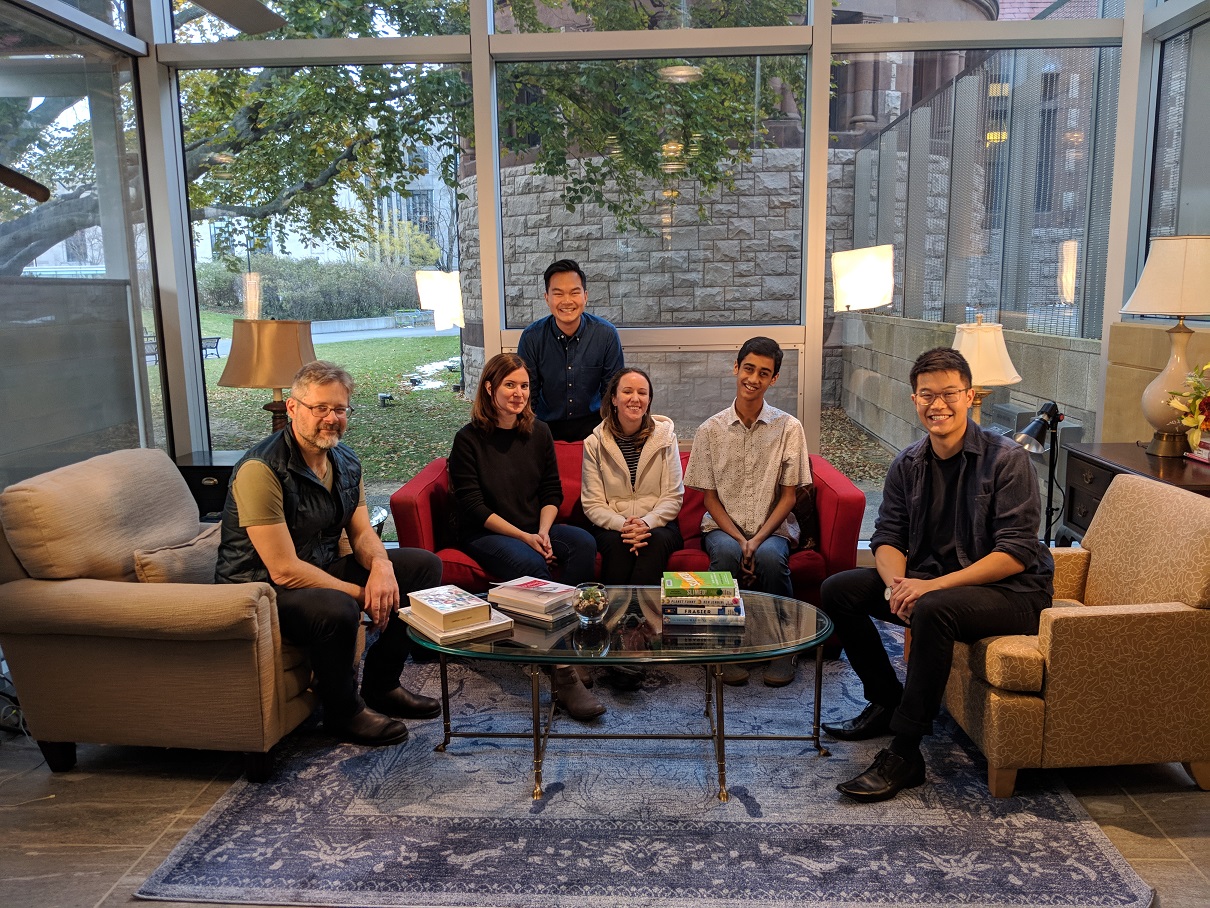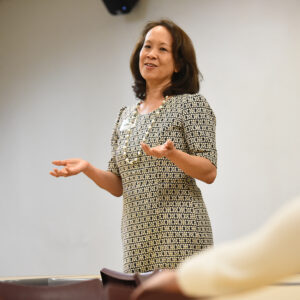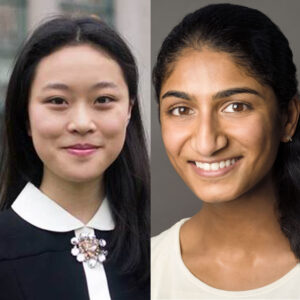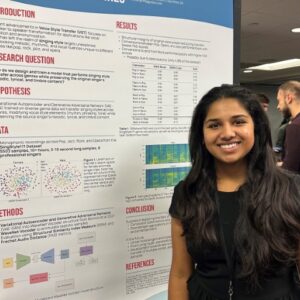Next month, senior Nikhil Dharmaraj (pictured, second from the right) will visit Cambridge, Mass., to speak on a panel about the intersection of artificial intelligence and the humanities with Harvard University faculty members Jessica Fjeld and David Weinberger of Harvard’s Berkman Klein Center for Internet & Society. Dharmaraj’s work with Harvard began last summer during an internship at the college’s metaLAB, “a joint product of [Harvard’s] graduate school of design and the law school,” he explained, “which seeks to explore various issues at the intersection of technology and the humanities. Right up my alley, as I’m equally interested in both subjects!”
Dharmaraj worked on two projects during his time with metaLAB. The first, titled “Moral Labyrinth,” was showcased at the prestigious Ars Electronica festival in Linz, Austria, in September and consisted of mazes with borders made up of ethical quandaries about technology and nature. “My role in the project involved web development and early design of the digital labyrinth that ended up being exhibited at the festival,” said Dharmaraj. “I also contributed to the ideation of the physical labyrinth as well as general research for the project.”
His next project was “The Laughing Room,” an installation designed to emulate the set of a sitcom, in which participants’ conversations were scanned by an algorithm for speech patterns that would elicit laughter. A laugh track would play when the algorithm detected a phrase perceived as funny. “As a summer intern, I completed a full literature review on philosophical theories of laughter and computational humor, and I contributed to the project’s data collection and code,” Dharmaraj said. “It was done using a neural network, trained on various stand-up comedians.”
Upon matriculating at Harvard in the fall, Dharmaraj plans to continue working with metaLAB while working on his dual concentration in computer science and classics.















